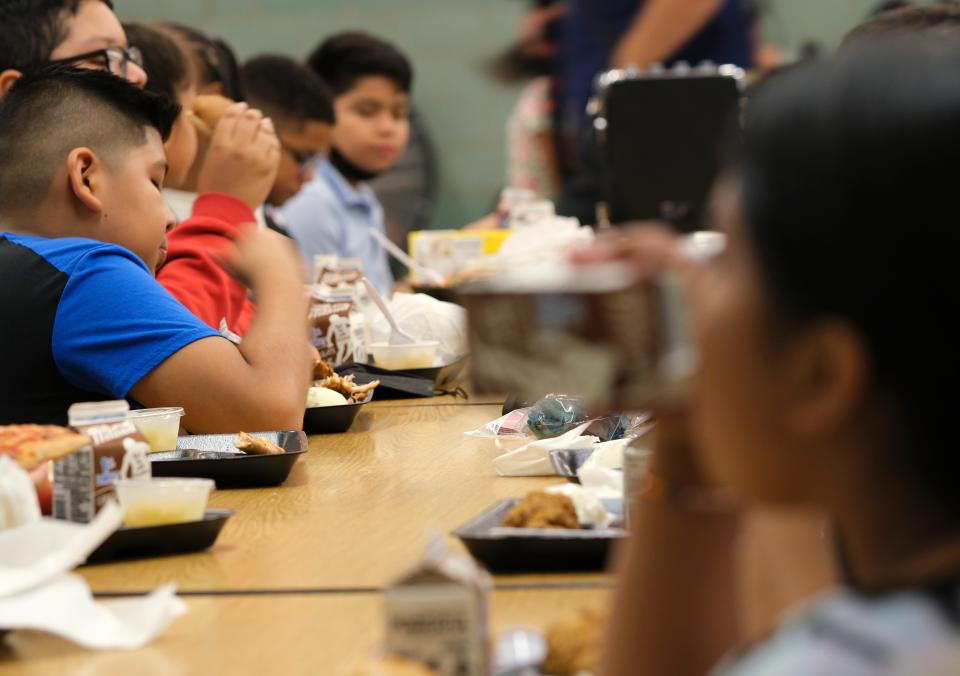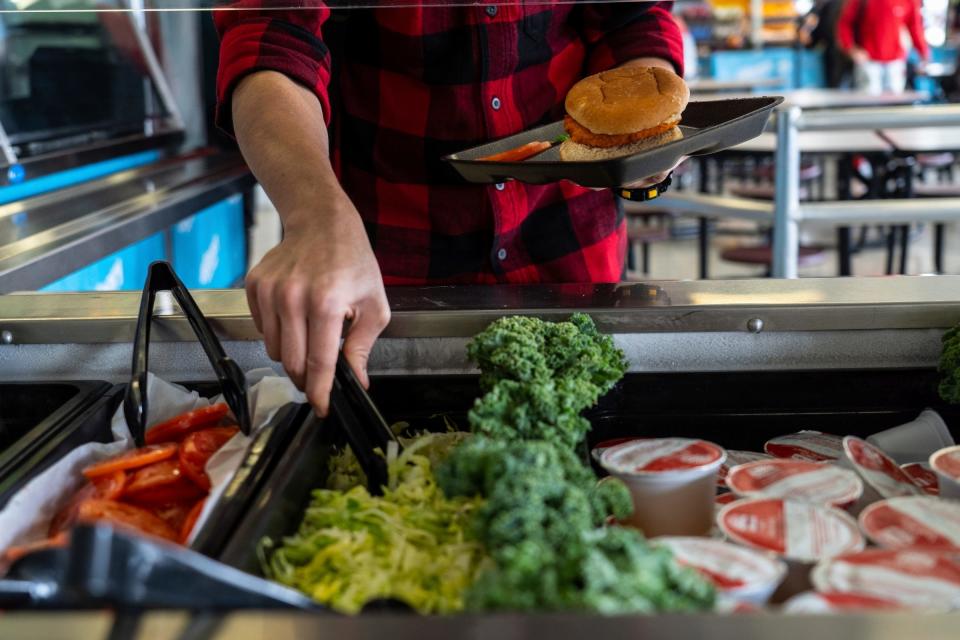Guest: School meals should be more affordable for Oklahoma families
If there is one thing the pandemic taught us, it is that families can quickly find themselves in crisis. Supply chain failures, inflation and illness can wreak havoc on a family’s ability to consistently provide sufficient food for their children ― the definition of food insecurity. Underemployment caused by reduced hours, shuttered businesses and a shifting economy adds to this crisis, but more frustrating is when members of the workforce are forced into underemployment to put food on the table.
We consistently hear from workers who fear small raises or increases in work hours because a miniscule change in income means that they will sacrifice needed support ― like school meals for their children. While they are making the right choice for their families, their careers ― and Oklahoma’s economy ― suffer.
As a result, more than one in five Oklahoma children do not have access to the food they need. They are our neighbors; they are our children’s classmates — they are our future. And they need our help.

Oklahoma lawmakers can help close the hunger gap for approximately 151,000 additional Oklahoma children with pending legislation to increase access to no-cost school meals. Authored by Rep. Jeff Boatman and Sen. Jessica Garvin, House Bill 1376 would increase the income eligibility threshold for families to qualify for no-cost school meals. Rep. Boatman’s colleagues expressed bipartisan support for the bill when it unanimously passed the House Appropriations and Budget Committee on March 1.
Many children struggle with food insecurity although their family income may not qualify for other types of assistance. This creates a major financial cliff for many families who are striving to increase their earnings.
Once household income increases even one dollar over the threshold, a family loses a myriad of social supports, including no-cost school meals. While working to increase their long-term earning potential, families are often financially worse off in the short term since their income is offset by the loss of vital benefits. HB 1376 helps ensure that as Oklahoma families work to get ahead, their children are not suffering.
This important policy change comes at a dire time for Oklahoma families. In June 2022, the federal government stopped providing no-cost meals to all students regardless of income. As thousands of Oklahoma students were left without access to adequate nutrition, student meal debt unfortunately returned.

Coupled with the recent expiration of emergency Supplemental Nutrition Assistance Program (SNAP) benefits for low-income families and the rising cost of groceries, Oklahomans are facing a hunger crisis.
By giving students access to the nourishment they need, lawmakers will improve the lives of Oklahoma children and provide greater educational opportunities.
Just ask any Oklahoma schoolteacher, when students are hungry, they are unable to focus on learning. Children who are hungry are more likely to score lower in reading and math, have more significant behavior and social problems, and are less likely to graduate high school, according to Hunger Free Oklahoma.
Beyond education, food insecurity has far-reaching impacts on our economy. According to Bread for the World, nationally, hunger and food insecurity escalate healthcare costs by at least $160 billion every year through issues like increased illness and decreased productivity.
According to the Annie E. Casey Foundation, a child’s chances of thriving depend not only on their individual and family circumstances, but also on the state in which they live.
Through no fault of their own, Oklahoma children live in one of the five hungriest states in the nation. From education to health, Oklahoma ranks among the lowest states for child well-being.
The time to act is now. Providing our students with nutritional meals should be as essential as providing textbooks. House Bill 1376 is a critical step toward better policy and meaningful investments in the health, education and success of Oklahoma children.
Teresa Rose is executive director of the Communities Foundation of Oklahoma.
This article originally appeared on Oklahoman: Oklahoma students need our help accessing school meals

